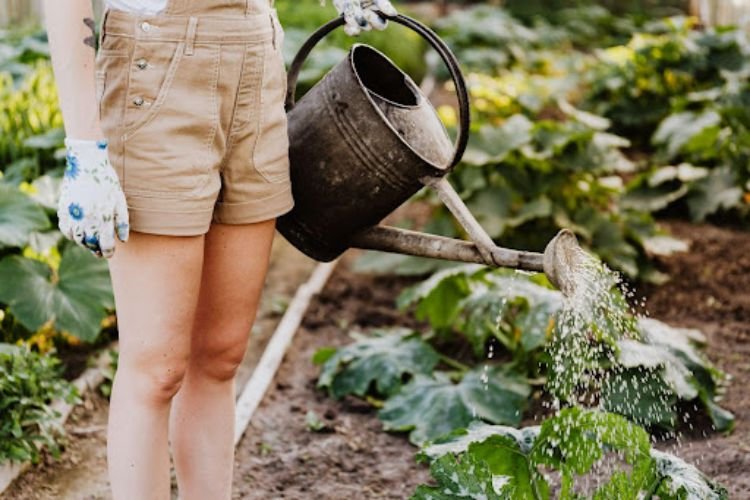
Along with other numerous benefits, gardening is a healthy and refreshing activity that reconnects you with nature and rejuvenates you. However, as a beginner, you might face some difficulties because gardening involves several techniques and tools. You would have many questions about it while learning gardening, and this article will save you a lot of time and make your life easier.
As a beginner, you’ll come across thousands of seeds, various types of soil, different amounts of watering and sunlight for different plants, and so on. Nevertheless, nature is a great teacher, and along the way, you will learn many important things. You need to prepare enough and get your basic skills right to enjoy gardening and keep doing it.
Start small
The biggest mistake anyone makes is, they get carried away with the idea and start gardening on a large scale. You don’t need to do that. Start small, maybe with two or three plants. They need to be located in a prominent location so that they are hard to ignore. This way, you can keep an eye on them regularly.
Proper sunlight
It is necessary to understand how the sun plays in your yard. For edible plants such as fruits and vegetables, six hours of sunlight is required. As a result, choosing the right spot is crucial.
Varying weathers
Leave your garden untouched in the fall. Leave ornamental grasses to provide beauty and perennials like coneflowers to have seed heads to feed birds. To increase the chances that a marginally hard perennial survives harsh weather, do not cut back vulnerable perennials.
Know your soil
Gardeners often overlook the importance of soil to plant health. Soil preparation may not be the most exciting aspect of planting a garden, but it’s perhaps the most important. Your garden won’t reach its full potential if you don’t have the ideal soil. As long as you pay attention to the basics, your soil will do most of the work.
Use of fertilizers
Always use organic fertilizers to save the environment, and they improve the overall health of the soil. On the other hand, inorganic fertilizers do not have any positive effect on nature.
There are two forms of fertilizers: Granular and Water-soluble. Granular fertilizers, with slow release, deliver nutrients over an extended period of time, whereas plants requiring an immediate boost of nutrients can benefit from water-soluble fertilizers.
Make use of leftover egg cartons
What do you do with your egg cartons when you’re finished using them? You can use them for a lot more than just eggs. If you’ve got leftover egg cartons from the many hens from your backyard coop, place them around the base of a plant in a pot or hanging from a wire. This will allow excess humidity to dissipate and moisture to reach your plant roots.
Egg cartons are arguably one of the most common and cheapest garden implements around. They’re lightweight, easy to build and reassemble, reusable, and don’t have any crazy edges that may snag plants or accidentally cut your hand.
Irrigation
Water is essential for most plants to survive, and even those that do not rely on water need it occasionally. Your garden’s water needs depend on many factors, and questions like how long to water grass seed rely on such factors.
- Weather: The weather decides the type and amount of water along with the way it should be applied. Make sensible plant choices keeping in mind the climate because trying to grow tropical plants in the desert will only lead to stress and failure.
- Rainfall: You can make adjustments for rainwater. Depending on where you live, nature may be able to help with some of the watering, so make sure your irrigation system allows you to adjust as required.
- The shape of your site: The water runs differently on a slope and a plain. You will need different methods to water a flat or slanting surface. It is also necessary to install check valves on lower levels to prevent the loss of residual water.
- Sunny or shaded: A sunny garden can lose as much as 50% of its water to evaporation, whereas, in shades, the water can stay longer.
Mulching
Mulches stabilize soil and prevent erosion. If properly used, it improves soil structure and quality, boosts moisture retention, and inhibits weed growth. It increases biological activity and mixes organic materials into soils while preventing weeds from growing. An alternative to chemicals, cutting, mowing, etc., it is a versatile herbicide.
Winter precautions
As a beginner, you cannot avoid being prepared for winter. If you don’t take adequate precautions, your plants can suffer from cold temperatures, drying winds, and snow. A prolonged freeze can damage sprinkler systems, cause windburn to plants, and break tree branches.
You can eliminate hundreds of overwintering seeds by weeding the garden late in the season.
- Leaves and other debris should be removed from lawns and beds to prevent pests and diseases from overwintering. You can use mulch made from clean, dry leaves (not from trees or shrubs that are diseased).
- Use a fall fertilizer high in potassium to prepare your lawn for winter.
- Mow the grass short: the last mowing should be between 2 and 3 inches tall to prevent fungi from growing.
- Lime makes the soil more alkaline, which is better for lawns.
- It’s better to unplug the timer during a winter storm to prevent damage from power surges.
- To prevent the irrigation system from freezing damage, you should install periodic outlets that can be used to blow out any remaining water using an air compressor.




